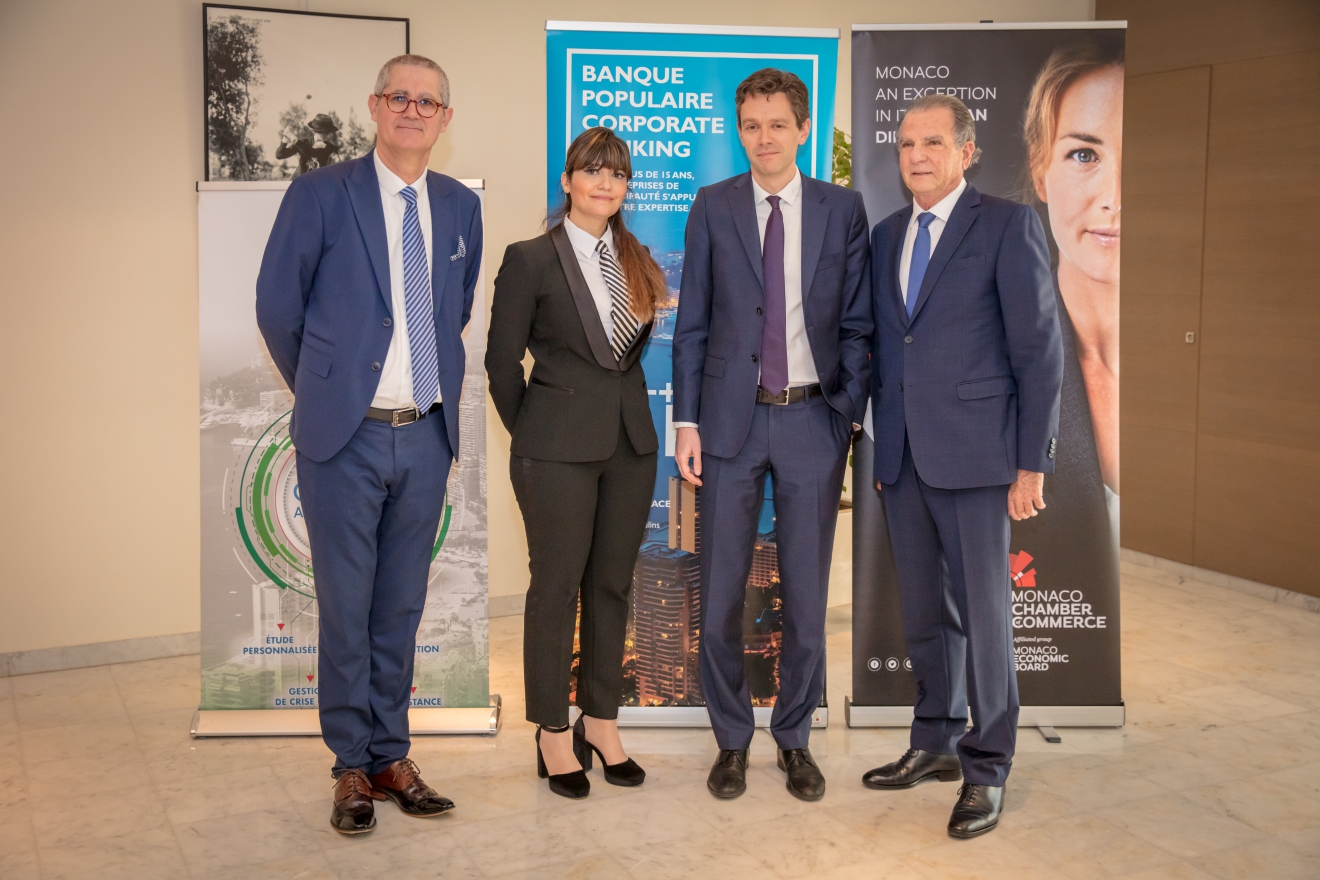Julien Marcilly analyses uncertainties gripping the global economy
Fears of contagion by the coronavirus were not the main reason for the high turn-out to hear Julien Marcilly’s always pertinent country risk analyses that he has been delivering to MEB members for the last seven years. While the pandemic is already having an impact, there are many other factors to consider when forecasting for the future, says Coface’s Chief Economist.
Organised in partnership with Banque Populaire Méditerranée and Gramaglia, the talk was attended by over 100 entrepreneurs in the Principality, all keen to find out more in these uncertain times, particularly those companies operating in international markets.
Julien Marcilly outlined the various challenges facing global trade, starting with the coronavirus although, as he pointed out, “two months’ ago we were not thinking about a health crisis which is the main risk today”. The upheavals in trading are real: an impact on supply as Chinese production ground to a halt followed by a drop in demand as the virus spread. The repercussions have affected the global economy and dented confidence worldwide. As a result, Coface has revised its forecasts for global growth down by half a point, provided the coronavirus peaks in the second quarter.
Another factor almost eclipsed by the virus but which is having a certain impact is the rise in protectionism, the China-USA trade war being the prime, but not only, example. In fact, measures taken by the two giants represent only a quarter of those being adopted worldwide, therefore an underlying trend which is having repercussions for trade. However, impacts are not always as expected, so with regards to America’s deficit, China’s decline as a supplier has been largely offset by more imports from Mexico and Vietnam.
Julien Marcilly also pointed out an atypical cycle where unemployment remains generally low without interest rates being increased. The situation favours real estate and construction where the liquidity risk that led to the 2008 crisis is not a priori to be feared. However, this situation really only benefits the wealthiest households and, conversely, the poorest who have no means to buy their own property.
Still, according to the economist, the services sector and those linked to tourism are losing out in this period of uncertainty, while sectors like the car industry, metal-working and textiles face longer-term challenges and will have to adapt to the new order.
To conclude, Julien Marcilly used maps of the world to illustrate different country risks and the capability of each to react to these risks. The audience paid close attention to this part of the talk before a question and answer session brought forth more details for specific regions. The subject of Brexit was raised, but suffice to say this issue has taken a back seat for now in Europe due to the coronavirus.


